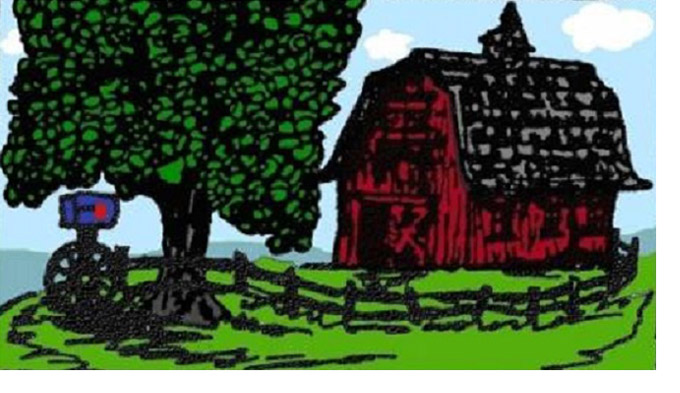Eligible homeowners 65 and older in the five suburban collar counties will see the value of their senior citizen property tax exemption increase by $3,000 next year.
The property tax break is automatic for homeowners who already receive the exemption in DuPage, Kane, Lake, McHenry and Will counties, which amounts to more than 20% of all residential properties in those counties, according to a Daily Herald analysis of collar county property tax records.
The increase is thanks to a law passed nearly unanimously in 2022 boosting the exemption to $8,000 from $5,000, matching the value of the benefit seniors in Cook County already receive. The value for eligible homeowners in downstate counties remains at $5,000.
“When you’re looking at the crushing burden of property taxes, I would argue it’s Chicago and the collar counties that are bearing the brunt,” said state Rep. Stephanie Kifowit, an Oswego Democrat who sponsored the legislation to increase the exemption. “It’s only fair that the collar counties get the same type of relief Cook County residents enjoy.”
The increase applies only to residents in counties that border Cook County, and assessment officials warn it likely won’t reduce tax bills, just slow the growth.
Homeowners who turn 65 this year are eligible to receive the exemption for next year’s taxes if their home is their primary residence. Forms often are available through township assessor websites or at township offices.
Last year, 224,275 homeowners in the collar counties received the exemption that knocked $5,000 off the assessed value of their properties. The shift to an $8,000 senior exemption essentially lowers the assessed value of those collar county homes collectively by nearly $673 million more than if it had been left alone.
County assessment officials note that the number of homeowners granted a senior exemption continues to grow each year, outpacing the number of properties where the benefit drops off.
“It’s still climbing like it has for years, but we are starting to see it flatlining a bit,” said Helen Krengel, DuPage County’s supervisor of assessments.
Property taxes are determined by a formula that starts with the “estimated assessed value” of a property. Assessed values are roughly a third of the property’s market value. If a home has a market value of $300,000, the assessed value would be $100,000.
The exemption would reduce the assessed value of that home to $92,000 next year instead of $95,000. If the home’s property tax rate was 10%, the tax bill would be $9,200 instead of $9,500, a savings of $300.
However, the tax reduction enjoyed by that homeowner doesn’t mean the taxing bodies that typically receive those funds lose out on the $300. Instead, the burden is shifted to the remaining residential and commercial property owners who don’t qualify for the exemption.
In DuPage County, that shift is to fewer taxpayers, because homeowners with a senior exemption make up 23.1% of all residential properties there, according to county assessment officials. That’s compared to Lake County, where just 18% of all residential properties received a senior exemption last year, records show.
In Kane County, 20.8% of residential properties received a senior exemption last year, while in McHenry and Will counties the rate was 19.9% and 19.6%, respectively.
In Cook County, where the exemption rate remains unchanged, 19.7% of residential properties received a senior exemption last year, according to county officials.
“It’s also not a guarantee there’s going to be a reduced tax bill for many seniors,” said Lake County Chief Assessment Officer Robert Glueckert. “This is a general reassessment year, and Lake County residents, in most instances, have seen double-digit appreciations in their properties’ values.”
Combined with inflation figures that allow governments to tax at higher levels and a drop in commercial property values due to the COVID-19 pandemic, homeowners are likely to see property tax bills grow no matter what types of relief legislators employ, supporters noted.
“It’s really a savings, not a reduction,” said Adam Ballard, associate state director for AARP Illinois, who lobbied in favor of increasing the exemption amount for seniors. “It may not make a huge impact, but it will make a difference to a lot of individuals.”
The lion’s share of property taxes go to fund school districts. Legislators said a common complaint about high taxes comes from older constituents who don’t have kids in school any longer.
“I understand the challenge,” said state Sen. Laura Fine, a Glenview Democrat who supported the legislation that increased the exemption’s value. “But keeping our schools at the level they perform at is what keeps our property values so high, which is ultimately beneficial to every property owner.”
Legislators also increased the general homestead exemption for all collar county homeowners — including those who receive a senior exemption — from $6,000 to $10,000 beginning next year, as well. But because that is so widely applied to most residential properties and commercial property values continue to struggle, there likely will be little effect on most tax bills, experts agree. The general homestead exemption is available to any homeowner who claims the property as their primary residence.
Homeowners should contact township assessors to make sure any exemptions they qualify for are applied to their property’s tax bill, assessment officials said. The name of a homeowner’s township is listed on the tax bill.
